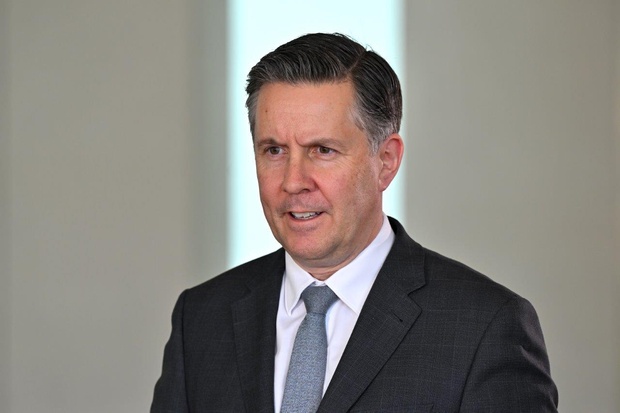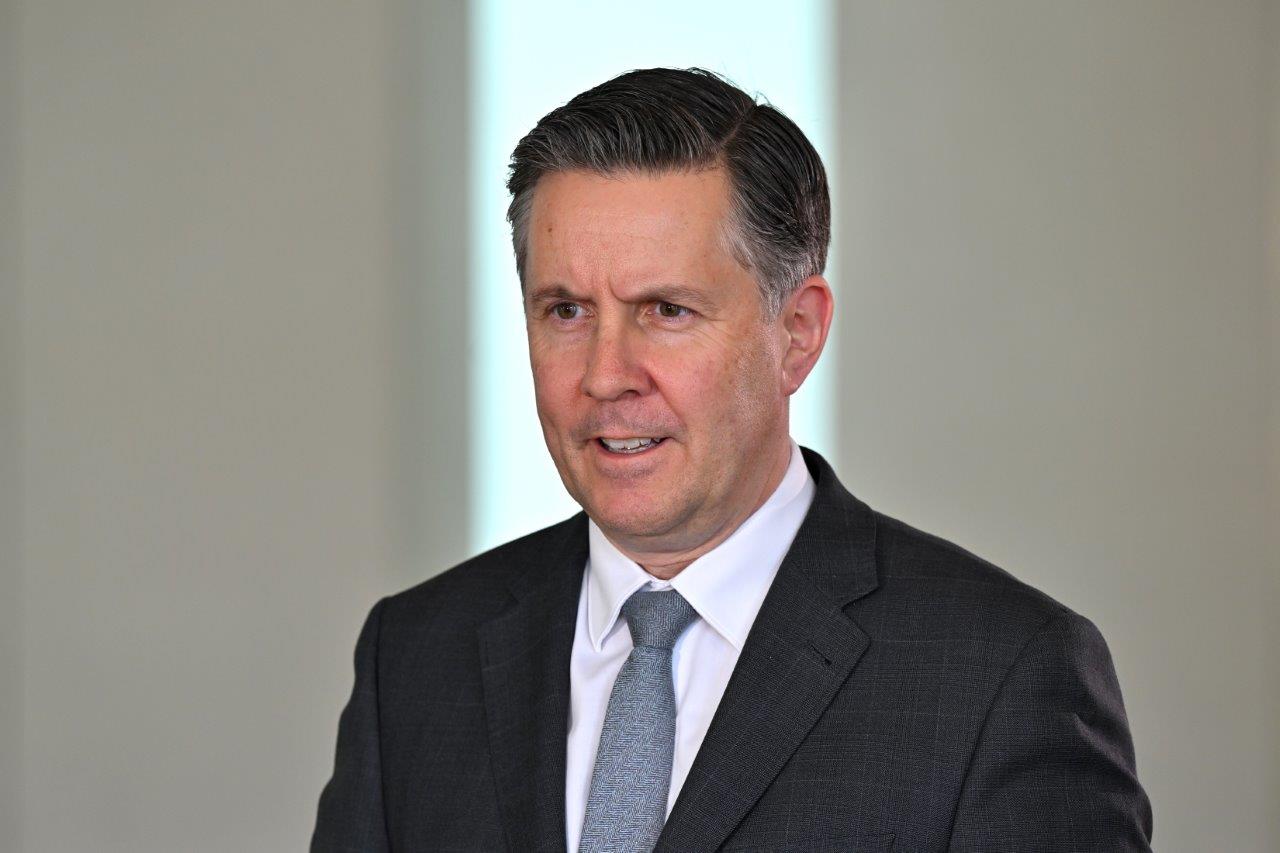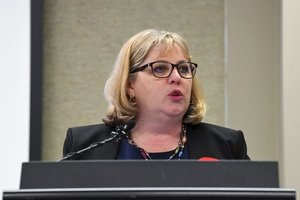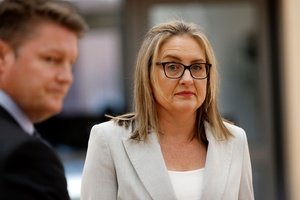Even as the Federal Government cracks down on e-cigarettes, an anti-smoking lobby says these conglomerates have responded in kind with a “tsunami” of pro-vaping content.
Health Minister Mark Butler will introduce laws to parliament today, which will stop the importation, manufacture, supply, and commercial possession of disposable single use and non-therapeutic vapes.
The latest national data revealed one in six high school students recently vaped, and young people who vape are three times more likely to take up smoking.
Many vapes include ingredients like diacetyle, which damages passageways in the lungs, formaldehyde, which can contribute to heart diseases, and the weed killer acrolein.
Australian Medical Association president Steve Robson has urged all MPs to support the legislation.
“Big tobacco profits from the misery of others and uses every trick in the book to hook young kids on vapes,” Professor Robson said.
“The significant rise of vapes in recent years is a catastrophic health concern, with children becoming addicted to nicotine and many young Australians moving on to cigarettes after vaping,” Robson said.
Robson said we're in the midst of a national health crisis that must be stopped in its tracks, and the only way to do that is to stop the retail sale of vapes.
“Fruity flavours, bright packaging, false claims that vapes are nicotine free and vaping shopfronts within walking distances of schools are all within big tobacco’s arsenal of tricks.
“This is marketing sleight of hand at its absolute worst.”
The Australian Council on Smoking & Health urged parliamentarians to listen to the health experts and to stand their ground against the “current tsunami of big tobacco funded pro-vaping campaigns”.
This outrageous story exposes the dirty tricks used by the dodgy tobacco industry to get more people hooked on #vapes. This is a classic case of 'astroturfing' — a practice used by tobacco and vaping lobbyists to completely fabricate a grassroots movement. https://t.co/2gMhwDnCMu
— AMA Media (@ama_media) March 20, 2024
The health body’s co-chief executive Laura Hunter said it was important to call out the deliberate confusion being generated by pro-vaping campaigns.
“We want Big Tobacco to butt out of children’s health and leave it to public health experts who have no vested interest,” she said.
The council said pro-vaping organisations commissioned misleading surveys and put out fake testimonials.
Butler said the Government’s response has been “world leading”, but concedes changes should have started years ago.
“We’re going to return this thing to what was the original proposition: a therapeutic tool that will be available on prescription ... to help people with smoking cessation,” he told ABC.
“I’m not willing to raise the white flag and let a whole new generation get addicted to nicotine.”
The only legal way to buy vapes will be therapeutically through a pharmacy, if legislation passes the parliament later this year.
While some health experts have voiced concern that the ban will only fuel black market sales of the vapes and be incredibly difficult to police, Professor Emily Banks, from ANU College of Health and Medicine, disagreed.
“We know that at the moment there’s a pretty open market because of illegal sales, so we know that for people aged 14-17, about 80 per cent say it’s quite easy to get their hands on vapes,” Banks told the ABC.
“So the idea is to direct that away from vapes being broadly available and making sure they’re directed more towards people who are using them to quit smoking.
“We know we’re not going to get a perfect situation, but the evidence is, if you take these out of the shops, you do have lower youth use – so, it’s more of a pragmatic move to really take things out of schools.”
Since the January ban on the importation of single use disposable vapes, the Australian Border Force and Therapeutic Goods Administration have seized more than 360,000 vapes worth almost $11 million.
New Zealand will ban disposable vapes and impose fines for those who provide young people with e-cigarettes.
Associate Health Minister Casey Costello announced on Wednesday the three-party coalition had agreed to prevent the sale of single-use vapes.
“While vaping has contributed to a significant fall in our smoking rates, the rapid rise in youth vaping has been a real concern for parents, teachers, and health professionals,” Costello said.
There are more than 1500 vape retailers in New Zealand. Any of them found to be selling vapes to people under the age of 18 could be hit with NZ$92,600 (A$85,500) in fines, with individuals slapped with a NZ$930 (A$860) penalty.
The British Government, meanwhile, will introduce a bill in parliament to fulfil its promise to phase out smoking among young people by banning tobacco sales for future generations.
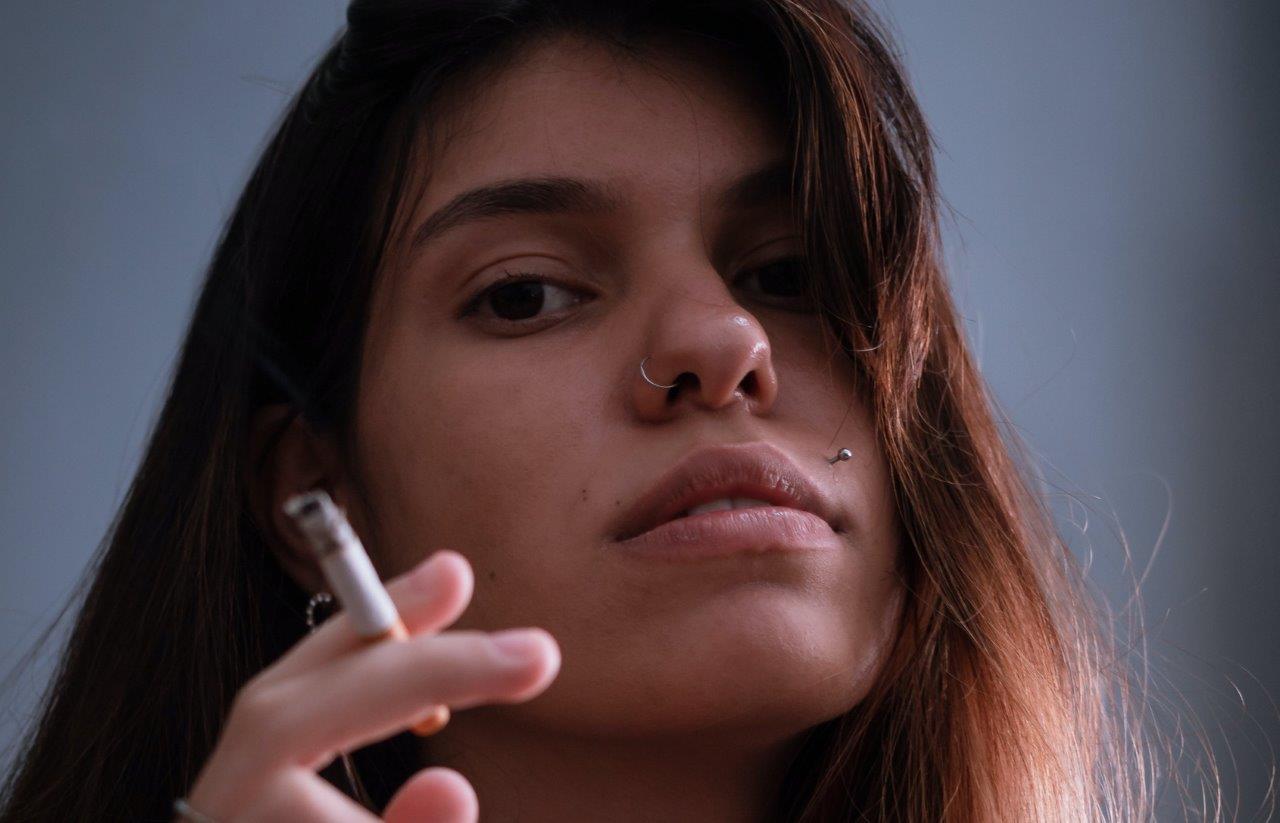
Last month, laws introduced by New Zealand banning tobacco sales to those born after January 1, 2009 was repealed by the country’s new coalition government.
The Tobacco and Vapes Bill will be one of the world’s toughest anti-tobacco laws and prevent children turning 15 this year or younger from ever being able to be legally sold tobacco.
It will effectively raise the legal age people can buy cigarettes by one year every year, with the aim of stopping today’s young people from taking up the habit in the first place.
The Government said smoking itself would not be criminalised, therefore anyone who can legally buy tobacco now would not be prevented from doing so in future.
“If we want to build a better future for our children we need to tackle the single biggest entirely preventable cause of ill-health, disability and death: smoking,” Conservative Prime Minister Rishi Sunak said in a statement.
Critics say the move is “unconservative”, and former prime minister Liz Truss is one of several members of the governing party to say they will vote against the legislation.
Despite the opposition, the legislation is expected to pass with the opposition Labour Party suggesting it would support the measure.
The legislation has now been published, and formally introduced in Parliament. A date when MPs will begin debating it is yet to be announced.
Last month, a similar law introduced by New Zealand banning tobacco sales to those born after January 1, 2009 was repealed by the country’s new coalition government.
The British Government said smoking costs its National Health Service and economy an estimated £17 billion (A$21.63 billion) a year.
A sharp rise in vape use by non-smokers and young people has forced the Government – a proponent of vaping as a way to reduce the harms of smoking – to consider tougher controls.
The draft law also contains powers that will allow ministers to introduce restrictions on vape flavours and new powers to change how vapes are displayed in shops, restrict vape flavours and packaging intentionally marketed at children to combat the rise in youth vaping.
with AAP

